Should Montessori Education Have a Place in Your Family?
This post may contain affiliate links.
January is often preschool registration so I invited a Montessori educator, Deb Chitwood, to share about the Montessori philosophy of learning.
I’m a Montessori educator/writer, so I’m biased. Still, I think Montessori education should have a place in every family. In fact, you’re probably using a number of Montessori principles already – even if you’ve never considered Montessori.
Montessori Education
A Brief Intro to Montessori:
Montessori education is a system of education developed by Dr. Maria Montessori in Italy in the early 1900s. It’s most commonly seen in preschools, but there are Montessori schools from preschool through high school throughout the world. Montessori education is also becoming more and more popular as a method of homeschooling. The primary focus is to follow the child, observing the child’s needs and interests and individualizing education based on those observations.
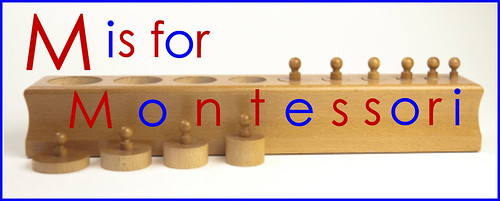
I wrote a post that has much more information and a helpful video: M is for Montessori.
There are 3 options for incorporating Montessori education into your family. The level of Montessori involvement is up to you, and the only right answer is the one that’s right for your unique family.
1. Use Montessori principles at home.
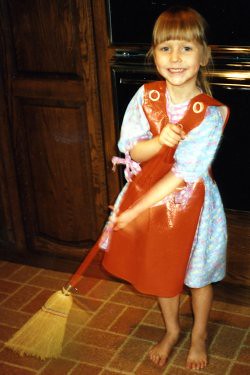
This can work for any family. Whether you use a few or many Montessori principles, you can help your child academically as well as help your child develop order, concentration, coordination, and independence. Top 10 Montessori Principles for Natural Learning gives ideas that can work in any home, regardless of where your child attends school.
2. Enroll your child in a Montessori school.
There are Montessori programs for infants and toddlers, although the recommended age for a child to start Montessori is 3 years old. Some Montessori preschool classrooms do accept 2½ year olds.
Montessori schools have mixed ages together in the same classroom and a 3-year cycle, so you’ll want to enroll your child by age 3 if possible. Some schools have long waiting lists, so you can’t start looking too early. When I had a Montessori school, a few parents signed up on the preschool waiting list when their baby was born. Of course, the economic climate affects school enrollments, so there are generally more spaces available in private Montessori schools today.
Here’s a post about choosing a Montessori preschool that has related videos: How to Choose a Montessori Preschool for Your Child.
Here’s a post with information and links to famous Montessorians: Famous People Who Were Influenced by Montessori.
3. Set up a Montessori homeschool classroom.
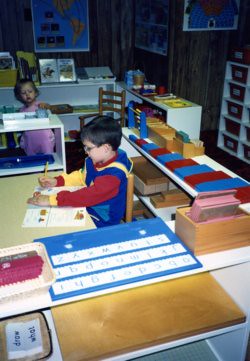
This option obviously requires the most work and time commitment on your part, but it’s more economical than enrolling your child in a Montessori school unless you can find a public Montessori school in your area. I’ve been a Montessori teacher, Montessori parent, and Montessori homeschooler. Each role was wonderful, and it just depended on my family circumstances as to which was right at the time.
This post and its links will help if you want to set up a Montessori homeschool classroom: How to Set Up a Montessori Preschool Classroom at Home.
You’ll find me at Living Montessori Now, the Living Montessori Now Facebook page, and Twitter (@DebChitwood). If you have any questions about Montessori education, feel free to ask me here or at any of my usual hangouts! Wishing you the best on your family’s educational journey! 🙂

 Deb Chitwood is a certified Montessori teacher with a master’s degree in Early Childhood Studies. She taught in Montessori schools in Iowa and Arizona before becoming owner/director/teacher of her own Montessori school in South Dakota. Later, she homeschooled her two children through high school. Deb is now a Montessori writer who lives in Colorado Springs with her husband of 36 years and their cat of 10 years.
Deb Chitwood is a certified Montessori teacher with a master’s degree in Early Childhood Studies. She taught in Montessori schools in Iowa and Arizona before becoming owner/director/teacher of her own Montessori school in South Dakota. Later, she homeschooled her two children through high school. Deb is now a Montessori writer who lives in Colorado Springs with her husband of 36 years and their cat of 10 years.




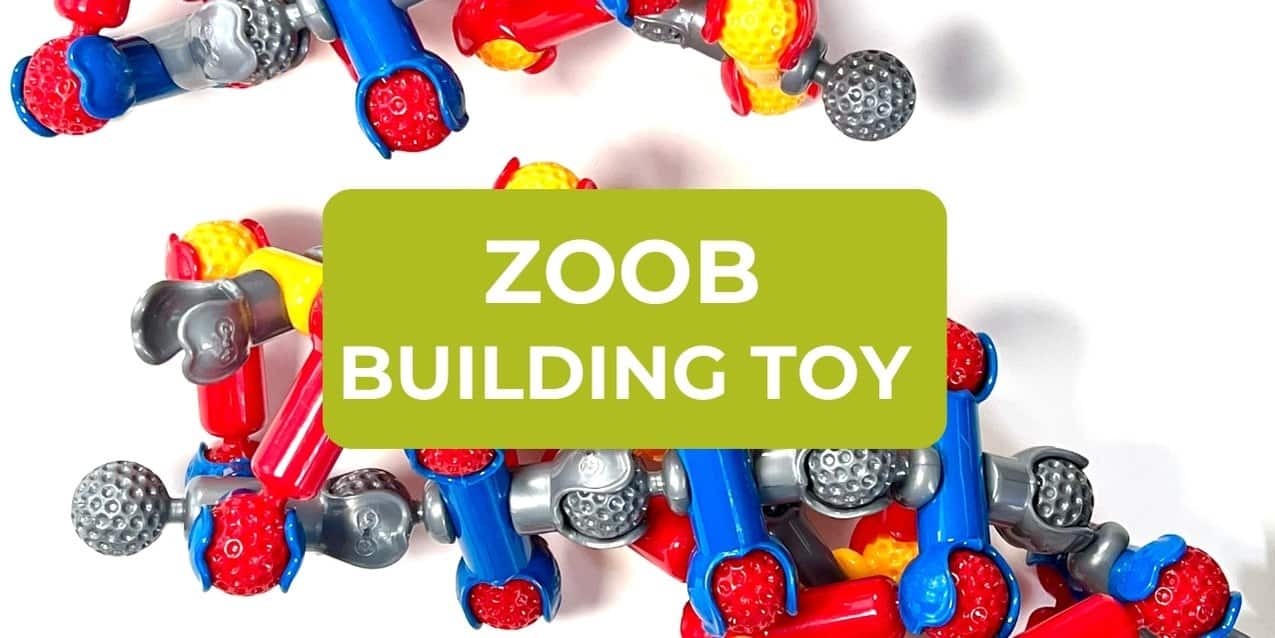
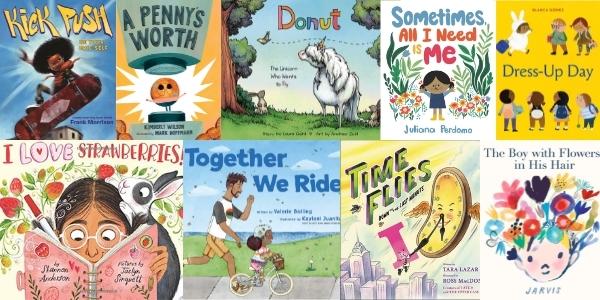
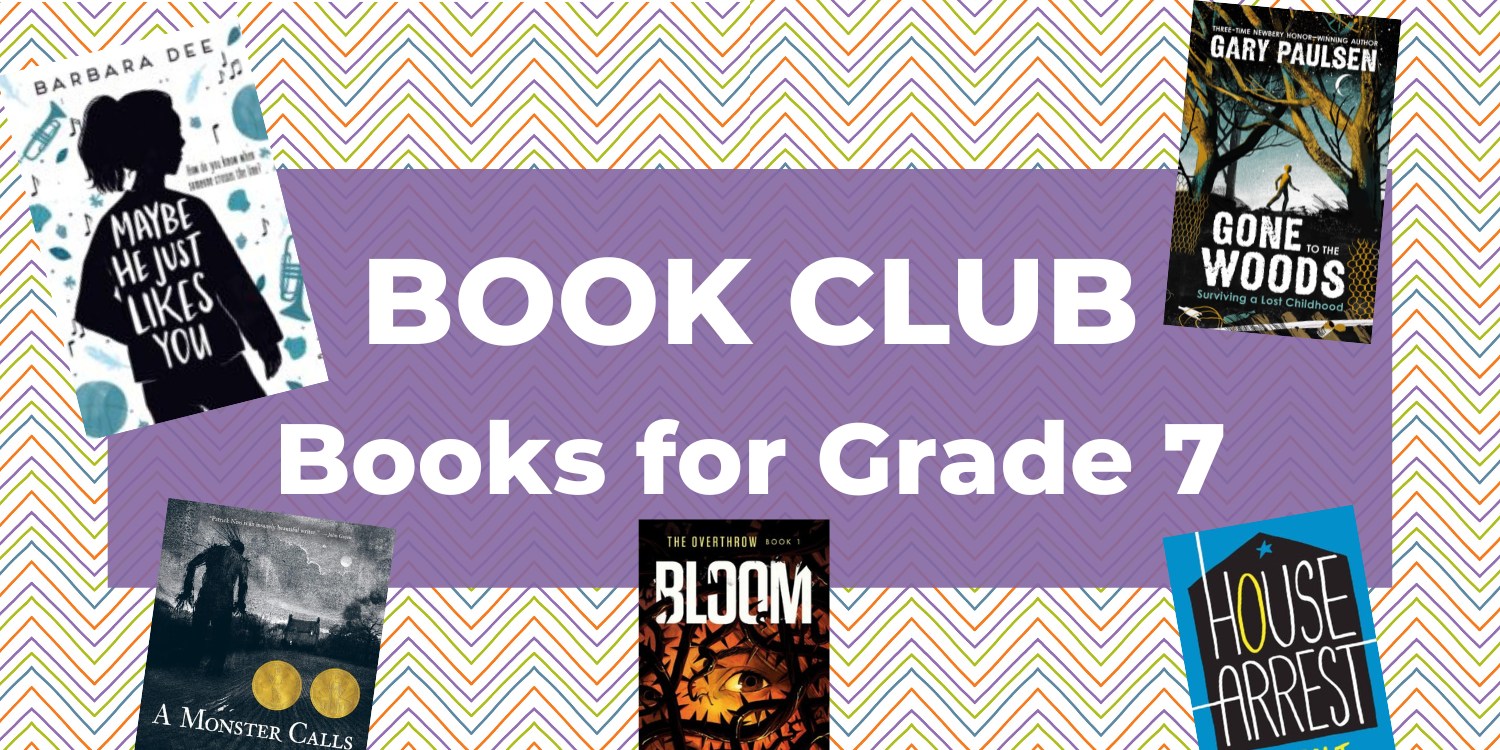
Great post, Deb! My son had a wonderful experience in a Montessori preschool and kindergarten. His teacher had 30 years experience as a Montessori director and it was incredible to see her classroom and how independent and peaceful the kids were. I really think it has given him a set of skills that will stay with him.
Thanks, Kelly! That sounds like an awesome preschool and kindergarten experience! One of my favorite parts of being a Montessori teacher was having a busy and happy, yet still calm, classroom. The self-discipline children develop in Montessori made being a preschool teacher so much for fun for me … and I absolutely love the beauty of a Montessori classroom, too! 🙂
Thanks for this article Deb! As a homeschooling mother of 6, I’ve employed the Montessori method to academics and our Catholic faith in the home for years now and believe it is important to support each other in our Montessori endeavors. Take a look at what I’ve learned and read my Montessori journey and others at: http://montessoricandy.blogspot.com/p/montessori-journeys.html
Thanks so much, Susana! I totally agree that it’s important to support each other. Even though each family might have a somewhat different approach to using Montessori principles, we’re all trying to do what’s best for our children. I love what you do at your blog! 🙂
If you want to foster a life long love of learning and you support and celebrate creativity, independence and choice; then Montessori should absolutely have a place in your family.
Thanks for your comment, Liz! Well said! One of the nicest benefits of Montessori education and using Montessori principles in our homeschooling was definitely the long-term love of learning. My two children had wonderful experiences in college, got straight A’s, and still have a love of learning. It was extra nice that they didn’t have any burnout from testing, competition, and grades going into college, which made college a much better experience for them. 🙂
Sorry for the typos. Ugh. iPad.
Ths is great! Passing it on to a friend. You had asked before what aspects of Montessori I had heard criticisms about…I couldn’t comment since I’m having technical issues leaving comments and hope this one goes through. I had friends who did not like formalmontessori schools thawed only advanced the top 25 per cent of a class to the next level. Our school does not practice that rule for advancement. Some felt that the emphasis on one activity at a time discouraged creativity. I, personally, practice some parenting philosophies that are not perfectly in line with the major theme of early self-sufficiency ( Particularly when it comes to potty training and co sleeping). But I love the Montessori gands- on method of learning. Our daughter attends a bilingual Montessori pre-school. The feedback is always 360… And parents are highly involved. Great post!
Thanks, Tricia! Your daughter’s bilingual Montessori preschool sounds wonderful! The name Montessori isn’t trademarked, so there can be a lot of variation between Montessori schools. I’m not sure how many Montessori schools only advance the top 25 percent to the next level. Montessori education should be individualized. If children move on to an elementary classroom, it would generally be after their 3 years in the preschool classroom.
The order and steps in an activity are ideally launching points. Typically, an orderly foundation gives the child confidence to come up with creative extensions to an activity (where the child might use a number of materials together). Here’s a post with links to some awesome sensorial extensions: http://livingmontessorinow.com/2011/09/05/montessori-monday-sensorial-size-extensions/.
I love that there’s freedom to personalize your own family’s use of Montessori principles. I have a post at Natural Parents Network on Montessori and Natural Parenting: http://naturalparentsnetwork.com/montessori-natural-parenting/. I hope that helps! 🙂